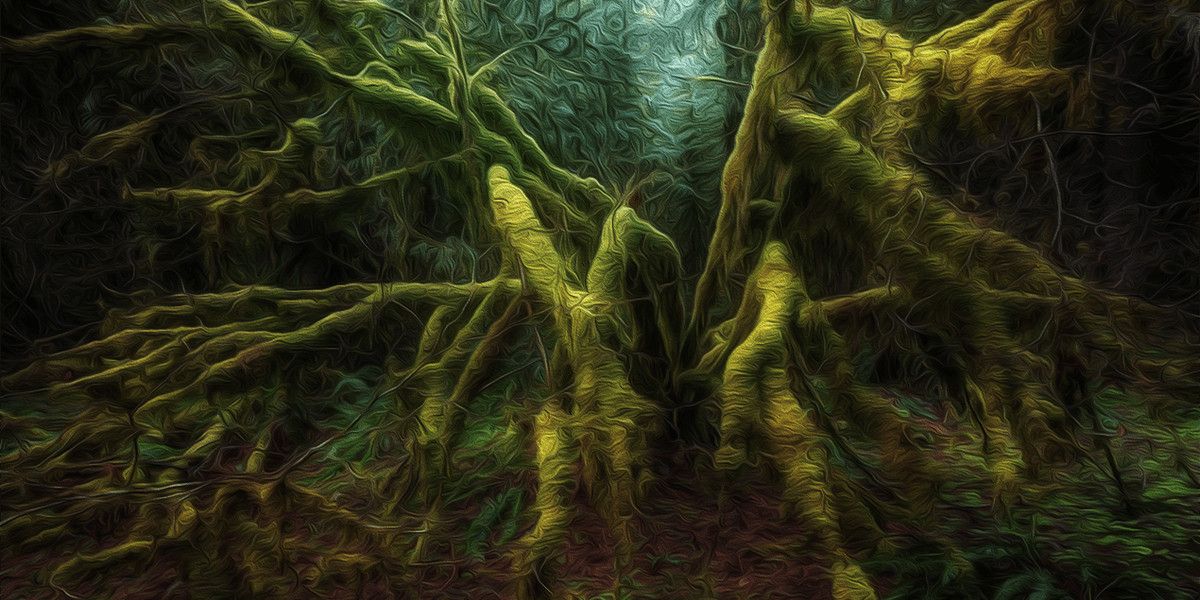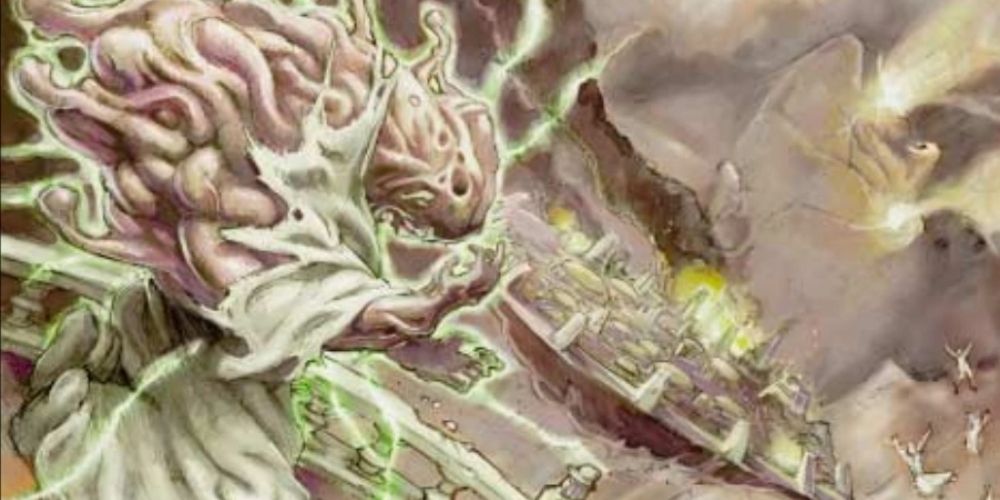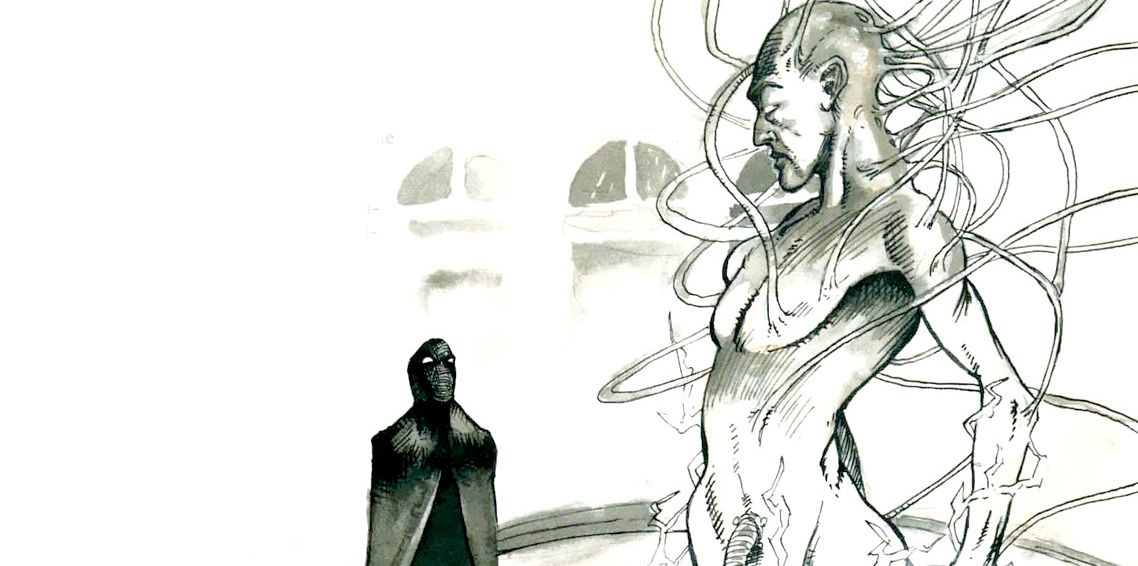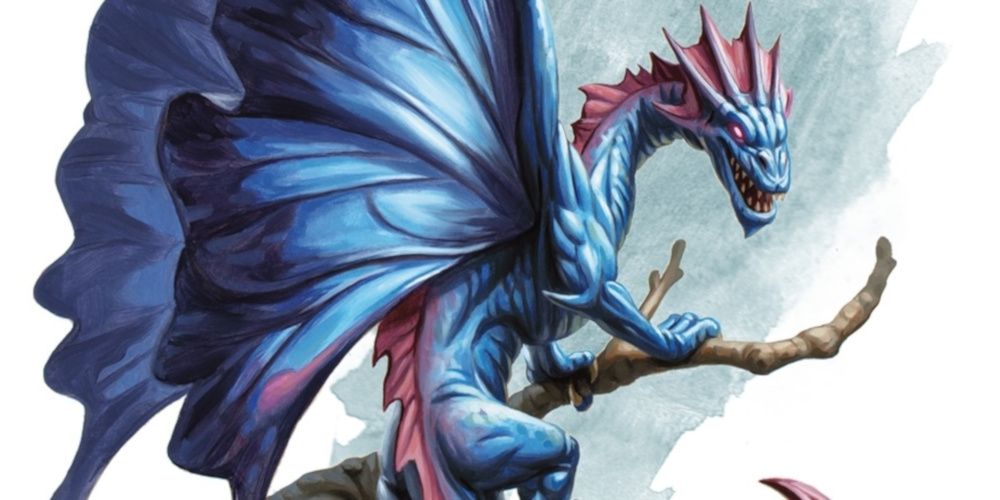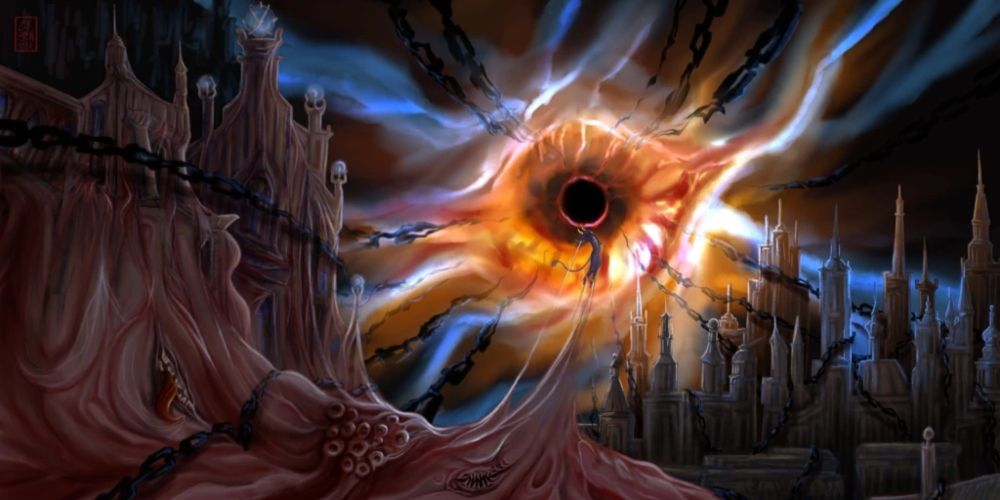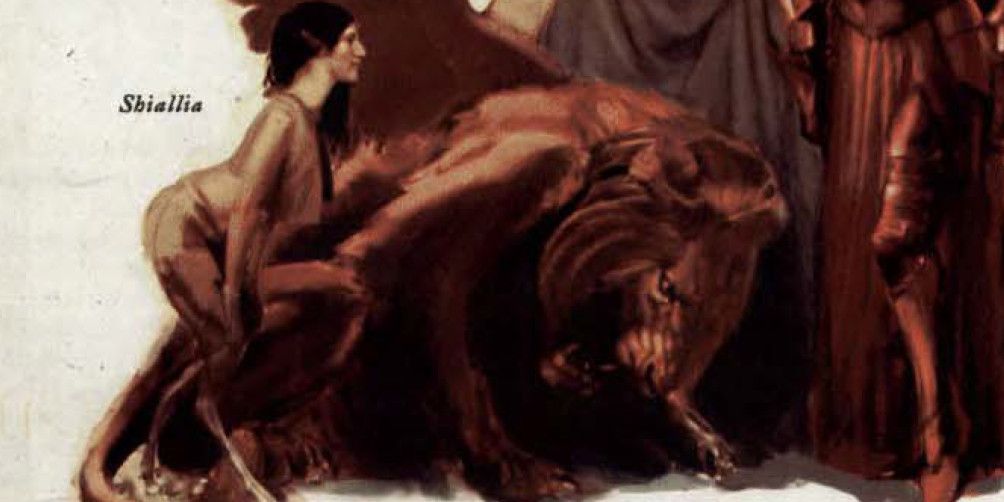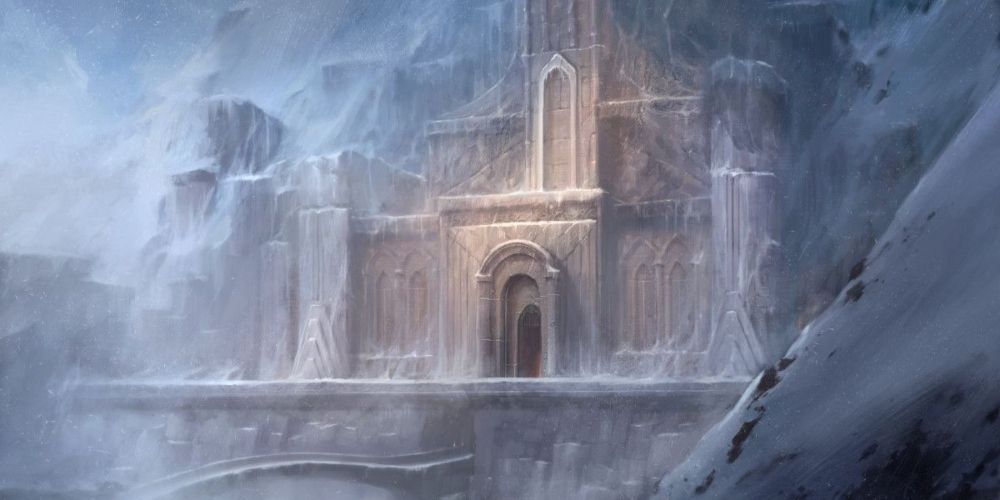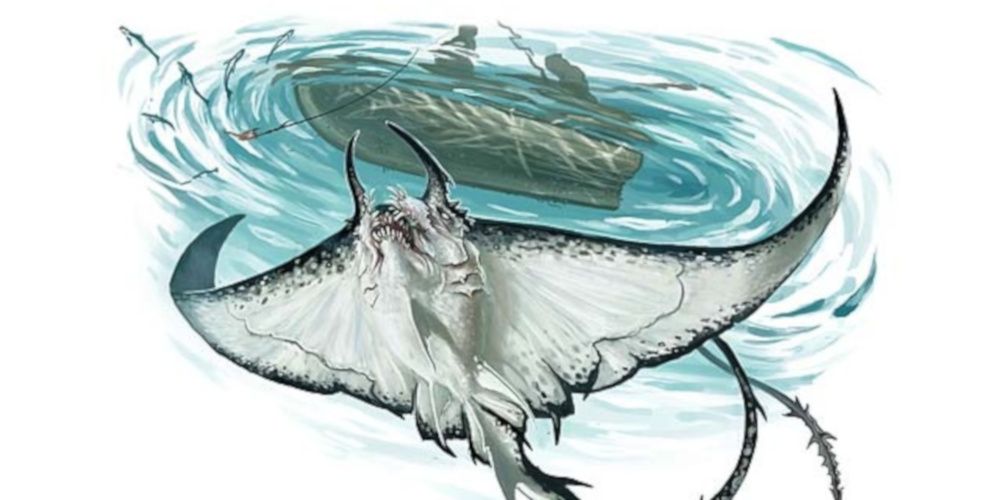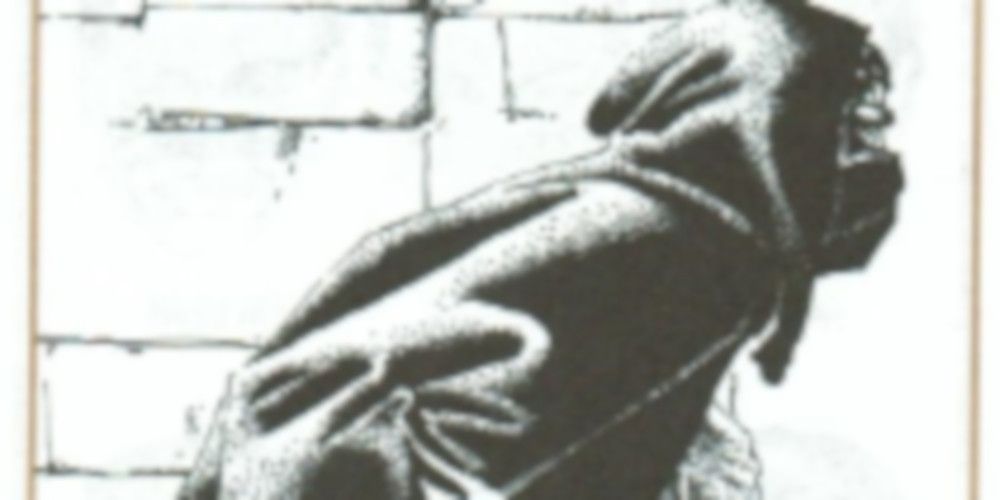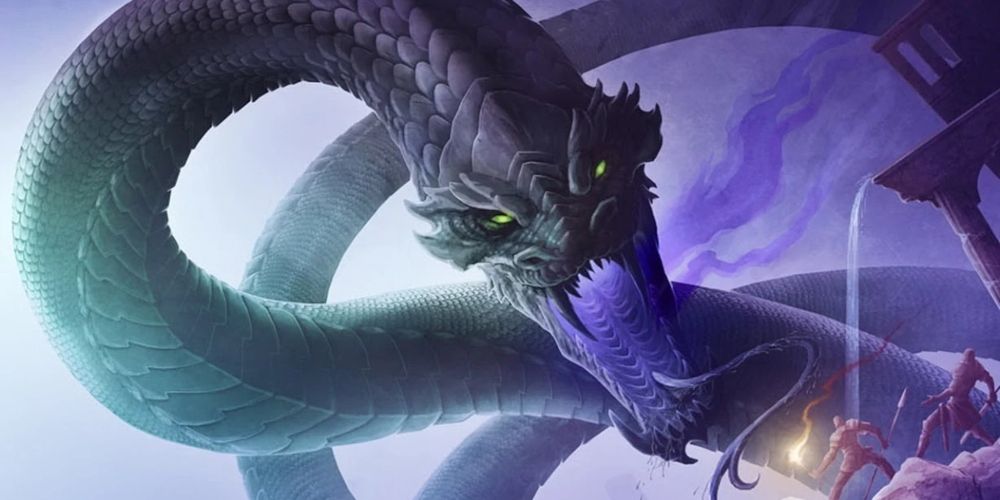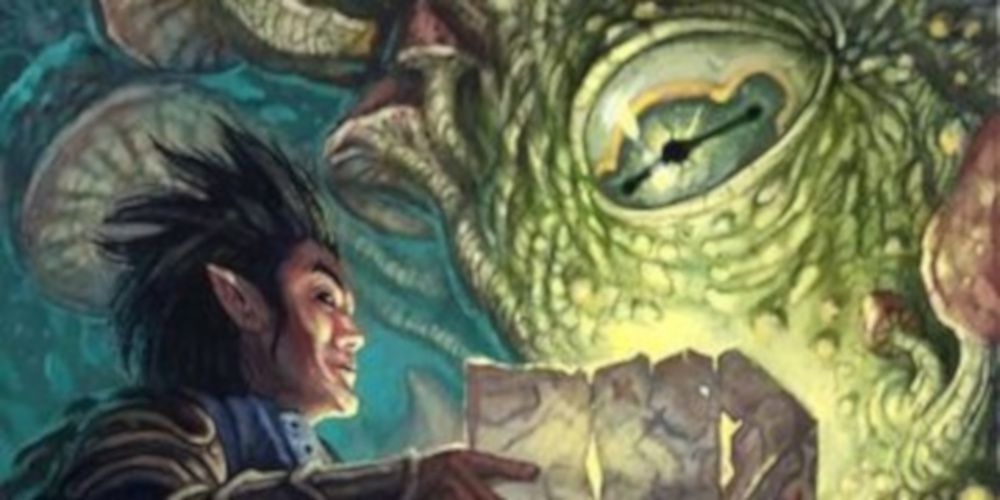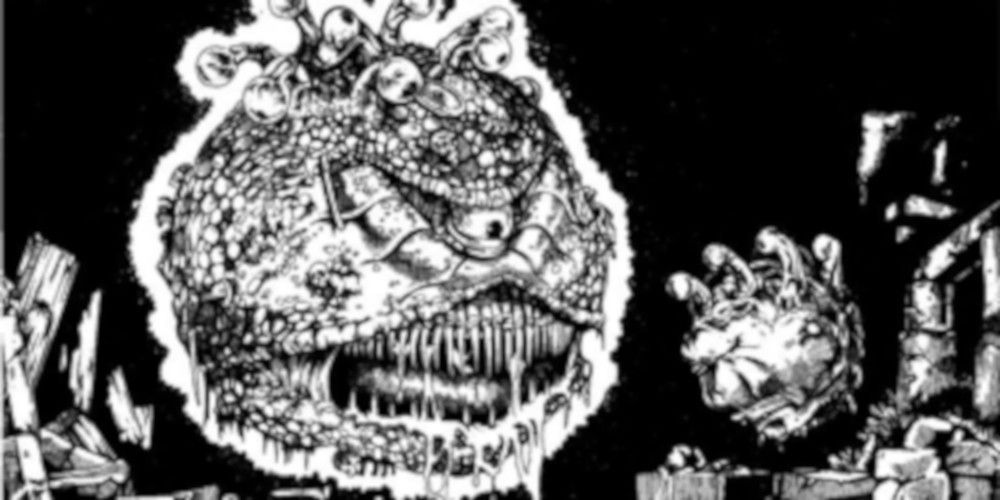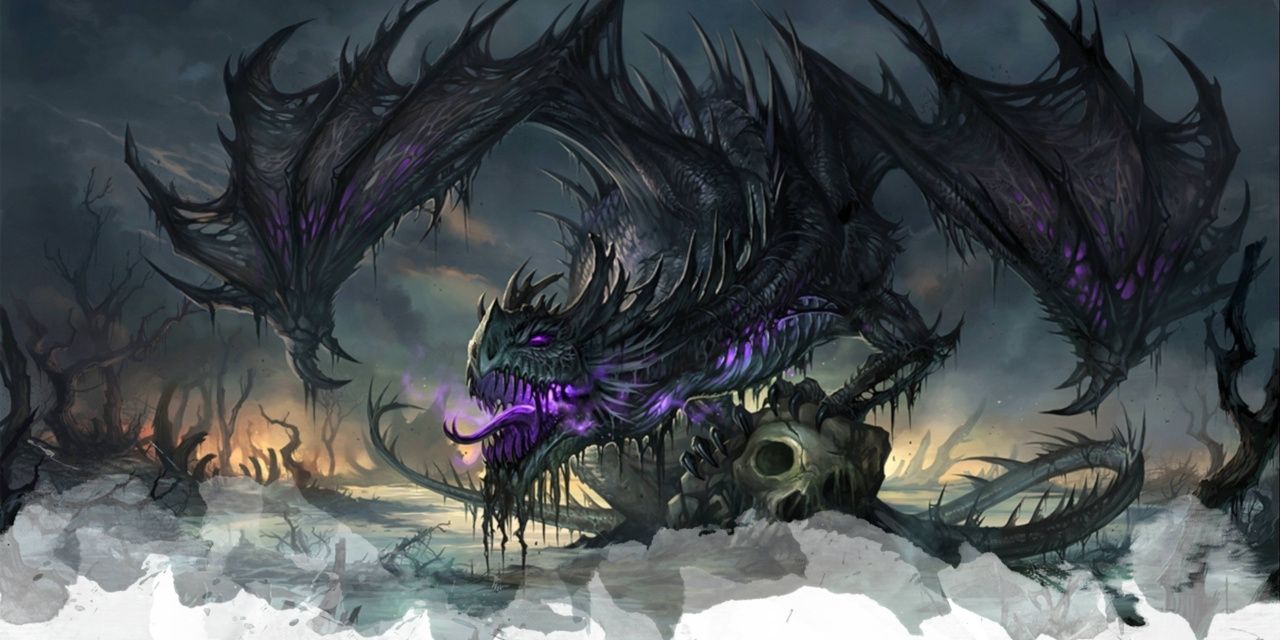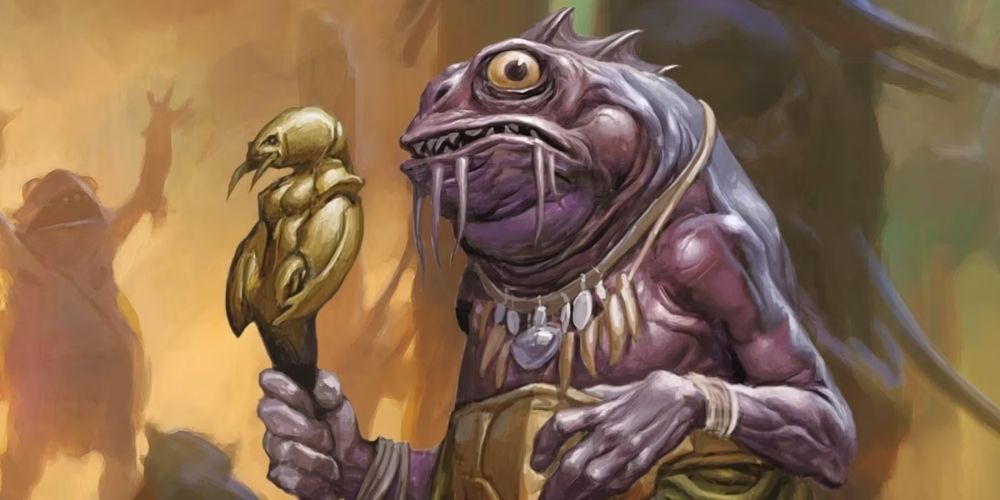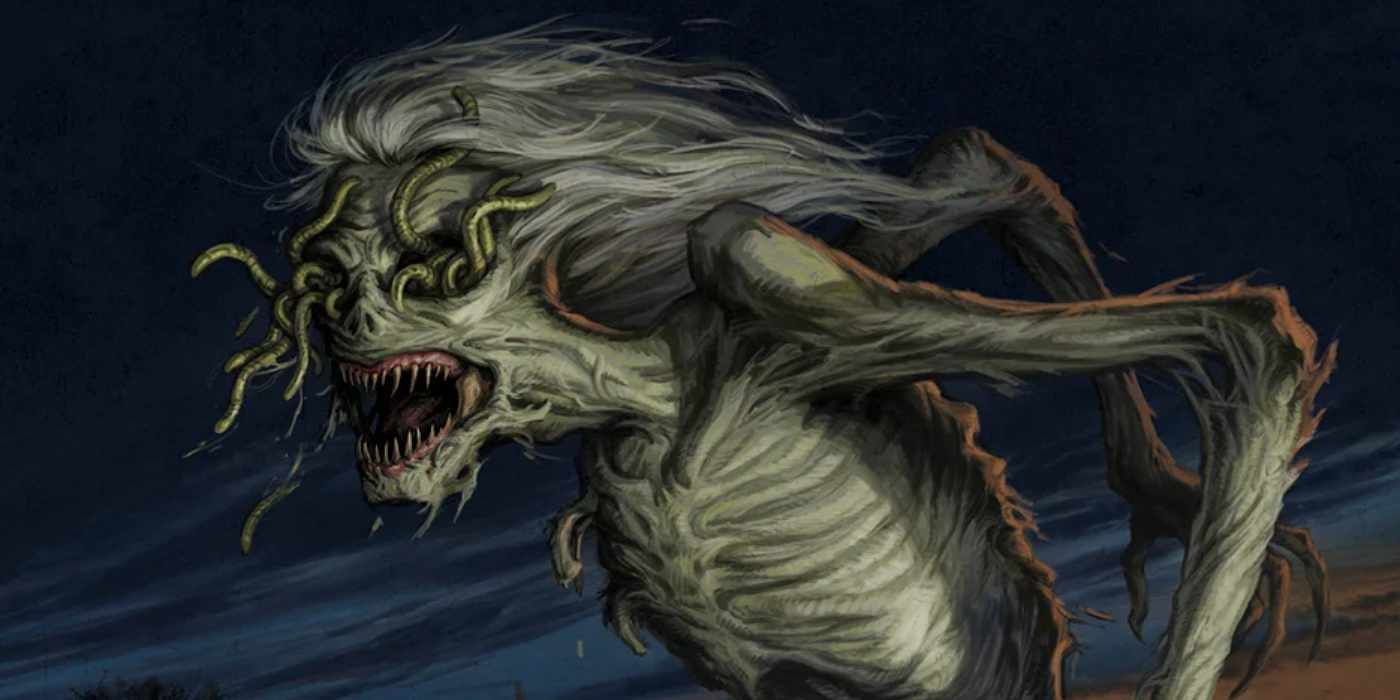[ad_1]
The gods and deities of Dungeons & Dragons are a flexible lot. With at the very least one god for practically each facet of life within the multiverse, they arrive in all shapes and types. Gods of particular ideas, gods of sure races, and extra all come collectively to create various pantheons in each D&D setting.
While a few of these gods are pretty typical by fictional and even real-world requirements, there are some that are a lot, a lot odder. Whether they’re uncommon of their look, their features, or their habits, there are gods who stick out like a sore thumb in D&D‘s pantheons.
Updated thirty first of August, by Isaac Williams: Gods are integral to almost each D&D marketing campaign, however the emphasis in printed supplies tends to be on critical and broadly-applicable gods. Some DMs may need one thing slightly extra distinctive or uncommon, so this listing has been up to date to incorporate much more of D&D’s weirdest deities.
15 Moander’s Multiple Deaths Simply Aren’t Enough
One of the creepier features of D&D’s Astral Plane is that components of it are affected by the corpses of lifeless and forgotten gods. One of the newer gods to hitch these corpses is Moander, the god of rot and decay. Moander was a serious risk who practically destroyed a number of main elven cities in Faerûn’s distant previous earlier than being weakened when his worshippers had been massacred by the elves in retaliation.
More lately, Moander tried to regain his former energy however was prevented by a celebration of adventurers. This defeat left him weakened sufficient that in the course of the Time of Trouble, the human bard Finder Wyvernspur was capable of kill him. This killing was, nevertheless, not fully profitable as Moander’s presence has utterly corrupted the area of Darkwatch, the place his thoughts nonetheless resides.
14 Karus Achieved Godhood For All Of A Few Moments
Karsus is without doubt one of the most notorious wizards in all of D&D, most well-known for the folly that noticed him change into a god for a handful of seconds. Desiring extra energy at any value, Karsus got down to exchange Mystryl, the goddess of magic. In an unparalleled exhibiting of magic, he solid a twelfth-level D&D spell and slew Mystryl, taking her place.
However, it wasn’t to final. Karsus could not deal with the ability and tasks of being the god of magic. To cease a cataclysm, Mystryl reduce him off from that energy, leading to huge devastation and Karsus’ personal loss of life. For his distinctive failure at turning into a god, Karsus lives on in D&D infamy.
13 Primus Is The Eternal, Painstakingly Lawful Ruler Of Mechanus
Planescape delights in being considered one of D&D‘s odder settings, throwing the strangest issues doable on the gamers as they discover the multiverse. One instance is Primus, the ruler of the aircraft of Mechanus. While Primus isn’t technically a god, it capabilities in an identical position for the modrons.
Primus, like all modrons, is lawful impartial to the intense, believing solely within the sanctity of order and legislation. This inflexible adherence manifests oddly, resembling appearing because the arbitrator in disputes between the Lower Planes and the Upper Planes. Primus’ oddest trait is that, when he dies, essentially the most highly effective modrons in Mechanus combat. The victor turns into the brand new Primus, with the unique’s character.
12 Hlal Is A Jokester And Trickster Dragon Goddess
While not often introduced up, dragons have their very own pantheon of gods that they worship. Hlal is considered one of these, the goddess of humor, inventiveness, and pleasure. She additionally serves because the messenger for the better draconic god Asgorath. Despite being worshiped solely by dragons, she has additionally appeared in a number of elven legends.
Personality-wise, Hlal goes towards the frequent stereotype of the strict or vicious dragon. She is as a substitute a jokester that enjoys wordplay and beings with a complicated humorousness. She is benevolently protecting of any people or races with even a touch of draconic affect about them.
11 Tharizdun Hates Anything And Everything
The god Tharizdun is without doubt one of the most feared and notorious in any D&D pantheon, for each his motivations and his deeds. He is liable for the creation of the Abyss, setting free the traditional obyrith demons to deprave an enormous portion of the Elemental Chaos into their very own realm.
Tharizdun’s acts are so depraved as a result of he’s twice-corrupted, as soon as by a shard of pure evil and as soon as by the maddening chaos of the obyriths. Even trapped in one other universe the place the Abyss has consumed every part – and referred to as the Chained God consequently – Tharizdun is ready to inflict insanity and horrific warping results on others, as proven in a number of traditional D&D modules.
10 Nobanion Spent Time As A Slave To Another God
Nobanion is uncommon amongst Dungeons & Dragons in that his origins are literally unknown. He appeared from an unknown aircraft to rescue these plagued by Malar, and stood as one of many god of the hunt’s longest adversaries. However, within the Time of Troubles, Nobanion suffered an assault that mutated him and left him below Malar’s management.
As such, the once-god of the Aristocracy has hung out as a hideous bestial creature, doing the evil of Malar’s bidding. Although he has been free of his curse and reverted to his unique kind, he nonetheless has one of many darker tales of any good-aligned god in Dungeons & Dragons.
9 The Dark Powers Are The Perfect Tormentors
The beings accountable for Ravenloft’s Domains of Dread will not be explicitly recognized as gods, however they fulfill an identical storytelling position in that setting. They rule over the Land of Mists extra completely and extra totally than any Darklord ever may, being the jailers who drag essentially the most depraved villains of any setting into their area to torture.
Almost nothing is understood of the Dark Powers, solely that they’re immensely highly effective. They do not appear to torment villains out of a way of righteousness, solely out of a want to harm them as deeply as they’ll. Wielding each emotional weak point of their prey towards them, they appear content material to torture for all eternity, with nothing referred to as to their motives or energy.
8 Ilxendren Commands Its Followers To Blight All Species Except One
Ilxendren is the patron deity of the ixzan, a race of sentient manta-ray creatures that dwell within the Underdark. They consider that Ilxendren created them, however the fact is a bit more complicated than they’re led to consider.
Ilxendren is without doubt one of the few gods in Dungeons & Dragons to really win the worship of their followers by martial drive. It battled numerous different Underdark deities for the precise to be the patron of the ixzan, and is now revered falsely as a creator. Using this affect, it bids them to make all different life depressing in addition to aboleths, whom it admires.
7 Bala Is A God Of Music, Soothing, And Assassins
The people of Zakhara within the Forgotten Realms primarily worship the eight Great Gods, representing eight virtues which are precious to society. There, nevertheless, are different gods that Zakharan worship. Bala is a goddess of music that emphasizes its capability to carry spirits and mitigate struggling.
While gods of music aren’t all that odd, Bala is exclusive due to her militancy. Her essential followers weren’t initially from Zakhara, however had been pressured to flee there as a result of persecution from the Pantheist League. As such, Bala maintains a cadre of bardic assassins who goal Pantheists – not one thing one expects from an uplifting musical god.
6 Dendar Is A Sun-Eating Serpent Of Nightmares
The beings referred to as the Elder Evils are a number of the most uncommon and disturbing figures in all of Dungeons & Dragons, and no small variety of them qualify as gods as properly. Dendar the Night Serpent is an immensely highly effective being who is almost as outdated because the cosmos, having come into existence the second the primary mortal had a dream.
Dendar lives on the Fugue Plane and feasts on the nightmares of gods and mortals alike. More than her uncommon origins and talents, nevertheless, Dendar has a prophecied position. She will sooner or later devour the solar of the Forgotten Realms‘ Toril and plunge it into an infinite evening, making her a uncommon evil deity who’s assured to ultimately destroy the world.
5 Psilofyr Is A God Capable Of Splitting Into Many Forms
One of the fascinating features of D&D lore is that almost each sort of monster has deities of their very own. For instance, the myconids have a patron deity within the type of Psilofyr. Psilofyr existed within the kind, befitting of a mushroom, of a singular intensive fungal root system discovered at nighttime.
Psilofyr’s fungal nature led to him having break up into a number of entities. One of those entities would discover himself within the realm of Mechanus and one other within the Underdark. The essential entity has, nevertheless, retreat into the Feydark and most Myconids have no idea of his existence.
4 The Great Mother Creates D&D’s Oddest Species
Beholders are already considered one of D&D‘s oddest monstrous creatures, and so it stands to cause that their goddess can also be odd. The Great Mother is the matron deity of the beholder species, whom they acknowledge as creating them from nothing. Although they worship her, the Great Mother doesn’t reply.
This is not simply due to the xenophobic hatred of all different issues that many beholders show. In addition to the eccentricities of beholders, the Great Mother’s psychological state is in a pointy decline as a result of corrupting results of demonic data. As such, she’s even odder and extra isolationist than her youngsters.
3 Null Is A Neutral Draconic God Of Two Aspects
Null is the draconic god of loss of life with two distinctive features. One is the Reaver, which emphasizes loss of life because the pure results of residing and gave boons to people who speed up the method. The different is the Guardian, which emphasizes loss of life as merely the start line of one other type of existence.
This twin facet is a extra all-encompassing view than many loss of life gods soak up Dungeons & Dragons. It additionally makes Null virtually distinctive amongst draconic gods for being worshipped by each D&D’s evil and good dragons alike, and for being impartial within the wars between Tiamat and Bahamut.
2 Blibdoolpoolp Is A Deliberately Nonsensical God
The kuo-toa are one of many extra uncommon monsters in Dungeons & Dragons, small fish people who find themselves among the many least-threatening-looking creatures in the whole recreation. They’re famous for his or her uncommon habits and odd obsessions, and most notably for the power to create gods out of sheer perception.
The best-known results of that is Blibdoolpoolp, the mage goddess of the kuo-toa. Everything about her is odd; from her identify to her look as a tall human lady with a lobster’s head and claws, to her claims of holding basic truths in regards to the universe that she hoards jealously. She matches the kuo-toa in oddness completely.
1 Kyuss Was Once A Mortal, And Now Heralds The End Times
The most monstrous instance of a mortal turning into a god is that of Kyuss. A necromancer, Kyuss took management of Wormcrawl Island close to the continent of Matzica. There he dominated as a god-emperor earlier than he carried out a bloody ritual to ascend to godhood.
This course of remodeled Kyussinto a large being composed of 1000’s of worms. Also referred to as an Elder Evil, Kyuss lives for a darkish apocalypse referred to as the Age of Worms, when all residing issues will likely be killed and rise once more as hideously corrupted undead. His most direct servants, the spawn of Kyuss, are a few of Dungeons & Dragons‘ least nice monsters.
[ad_2]

